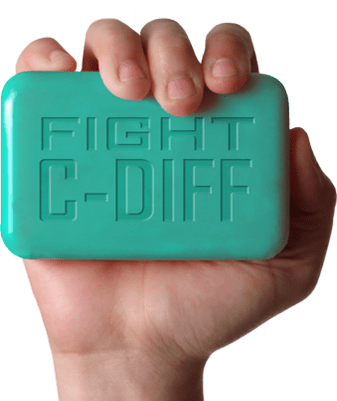What Is C Diff?

Is C Diff contagious? How do you get C Diff? What causes C Diff? How to get rid of C Diff naturally? Find out all the answers to the questions below.
Possibly the soundest c diff treatment is a prevention of the infection and the spreading of spores. Since c diff occurs most commonly in hospitals, nursing homes, and other public care facilities, these institutions are the ones that should be the focal points of prevention methods and the control of outbreaks. However, personal action is also advised, especially for those who work in or visit these facilities.
There are a number of ways to prevent or at least reduce the risk of infection, some of these are:
- Washing hands. When treating patients that are known to have been infected with this bacterium, thorough hygiene for hospital staff is mandatory. It is recommended that the hands be washed very thoroughly with warm water and soap, as this has been proven to kill off the spores of the bacteria. Visitors are also advised to wash their hands before and after contact with patients. Alcohol-based sanitizing substances should be avoided, as they are ineffective in the elimination of spores.
- Cleaning the area. In order to reduce the risks of infection, all surfaces should be cleaned with products that contain a high concentration of bleach, since ordinary cleaning products will not kill spores. In certain cases, hydrogen peroxide vapor is used to sterilize patient rooms after discharge, as this method has been shown to be effective.
- Protective clothing. The wearing of disposable gloves is recommended for all hospital employees.
- Contact control. Patients with an infection should be given a separate room or share one only with other patients that have been exposed to the same disease. Children under the age of 12 must not be permitted to come into contact with infected patients.
- Avoiding unnecessary antibiotics. The unsupervised use of antibiotics should be avoided. Usage should be as limited as possible. The antibiotics most commonly used in c diff infections are clindamycin, ampicillin, amoxicillin, and cephalosporins.
If followed correctly, these measures will considerably reduce the risk of infection and make further c diff treatment unnecessary.
C Diff Treatment Methods
C diff treatment varies depending on the severity and stage of the infection and the specific needs of the patient. In most mild cases, the best way to overcome the symptoms is to stop taking the antibiotics that caused the condition, allowing the gut’s naturally occurring bacteria to re-grow.
At the point where c diff colitis is diagnosed in a patient, it is indicated that specific c diff treatment is undertaken so as to avoid sepsis and the possible perforation of the bowel.
The treatment of the severe cases of c diff disease usually consists of the administration of the following antibiotics:
- Metronidazole. The most commonly administered drug in c diff treatment. It is the most preferred because of the accessible price and proven efficacy.
- Vancomycin. This drug is also used in the treatment of c diff, but only as an alternative, when metronidazole can not be used, as it has the tendency to make the intestinal flora vancomycin-resistant. It is most commonly used in cases where there has been no response to the administration of metronidazole or where the patient is allergic or resistant to that drug.
- Fidaxomicin. It has been found that this drug has the same therapeutic effect as vancomycin.
In order to lessen the frequency of bowel movements and to prevent dehydration, a powder drink called cholestyramine is occasionally administered. This drug also helps in the removal of harmful toxins. It should be used with caution and only paired with antibiotics, as it has no anti-infective properties of its own. Having the same effect, powdered banana flakes are a good option to cholestyramine if taken twice a day. It has also been shown that treatment with probiotics is an efficient way to stop the c diff-associated diarrhea as well.
Not recommended in the c diff treatment when dealing with pseudomembranous colitis are the drugs used to stop diarrhea such as loperamide, diphenoxylate, and bismuth based compounds. These have been shown to worsen those cases, because they slow down fecal transit, causing damage associated with toxins.
Currently, there is no generally applicable c diff treatment for patients with a repeated infection; clinical practice has shown that undergoing a new treatment with either metronidazole or vancomycin is effective in most cases.